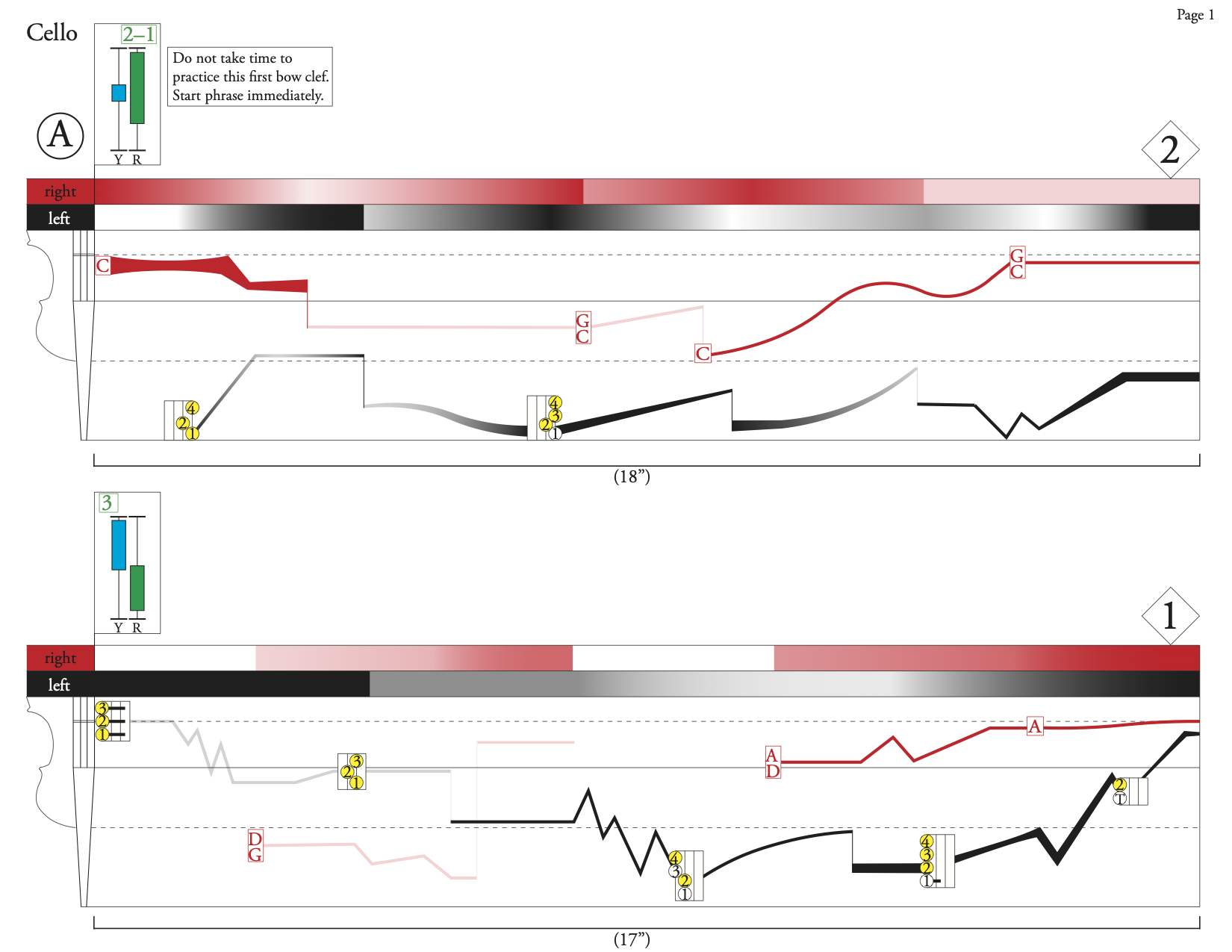Program Note:
In classical music, mechanical adherence to the score is rarely a criterion of good performance. Indeed, critics deem many performances expressive because they contain some discrepancy from the printed page. Through timbre, notation, and performance practice, flesh claws tripping over feather-drunk Thing amplifies this expressive confrontation between order and irregularity, control and freedom. By introducing harsh timbres to musical performance spaces, this work helps noise defy its own definition as music’s Other. Noise becomes music that is simultaneously not music, highlighting a rupture between signifier and signified, between musical form and sound itself. The materiality of sound is further highlighted by the notation, an action tablature that prescribes physical behaviors rather than describing resultant sounds. This tablature desublimates the score by foregrounding gritty, unpredictable physical processes. Additionally, the unfamiliar notation and information density of the score engage the performer in a continuous process of translation and decoding. The very act of reading music becomes improvisation. Though the score’s detail demands deep engagement, this is at odds with American musical culture’s appetite for efficiently reproduceable content. This cultural confrontation ensures the impossibility of a technically perfect performance, thus placing the identity of the piece far beyond any organized meanings we might glean from the score.


